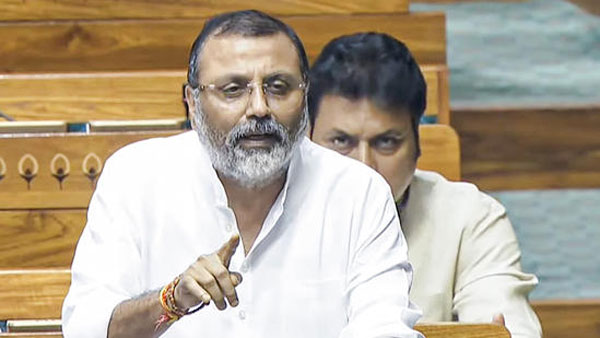Daijiworld Media Network - New Delhi
New Delhi, Apr 19: BJP MP Nishikant Dubey stirred a fresh political storm on Saturday with a pointed remark apparently targeting the judiciary, as the Supreme Court continues to hear challenges to the Waqf (Amendment) Act, 2025.
In a post on social media platform X, Dubey wrote in Hindi, “If the Supreme Court is going to make the laws, then the Parliament building should be shut down.” The remark, widely interpreted as a veiled swipe at the judiciary’s scrutiny of the amended law, has sparked a fresh debate on the separation of powers between the legislature and the judiciary.
The Supreme Court began hearing a batch of petitions on Wednesday questioning the constitutional validity of several provisions in the amended Waqf Act. These include clauses that allow for the appointment of non-Muslims to Waqf Boards and the removal of "Waqf-by-user" designations from certain properties—both of which petitioners argue are unconstitutional and discriminatory.

During the proceedings, the Union Government assured the court that no non-Muslim members would be appointed to Waqf bodies until further orders. It also promised that no Waqf properties, including those designated by usage, would be declassified or altered by local authorities for the time being.
The court acknowledged these assurances and held off issuing an interim stay on the controversial provisions. Instead, it directed the Centre to submit a detailed preliminary response within a week. The matter will be heard again on May 5.
The Waqf (Amendment) Act, 2025, was passed by both houses of Parliament earlier this month but has been sharply criticised by opposition leaders and minority groups. The inclusion of non-Muslims in religious boards and the power granted to District Collectors to reclassify Waqf lands have been among the most contentious aspects.
Dubey’s comment adds to growing political tension around the issue, particularly as Parliament and the judiciary navigate a delicate balance over legislative oversight and constitutional checks.